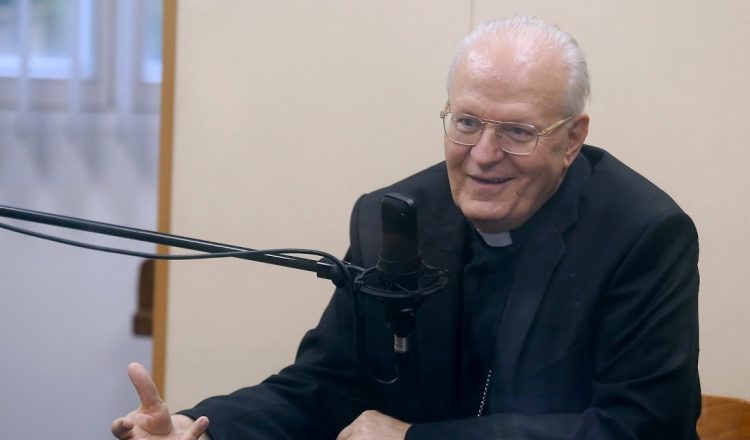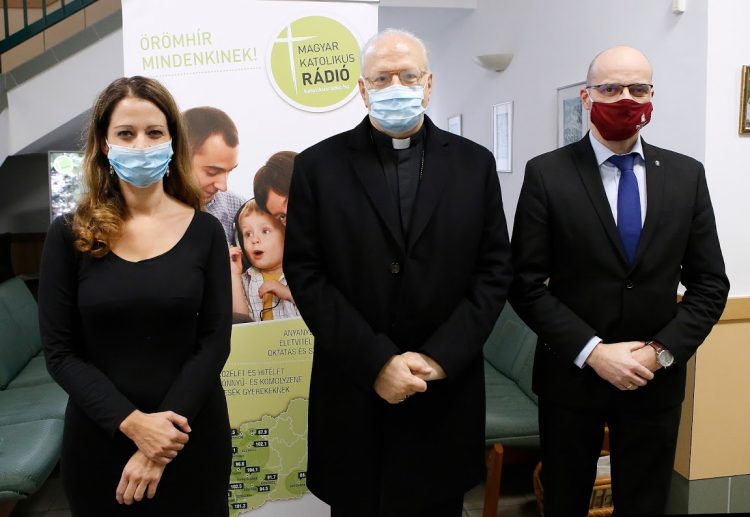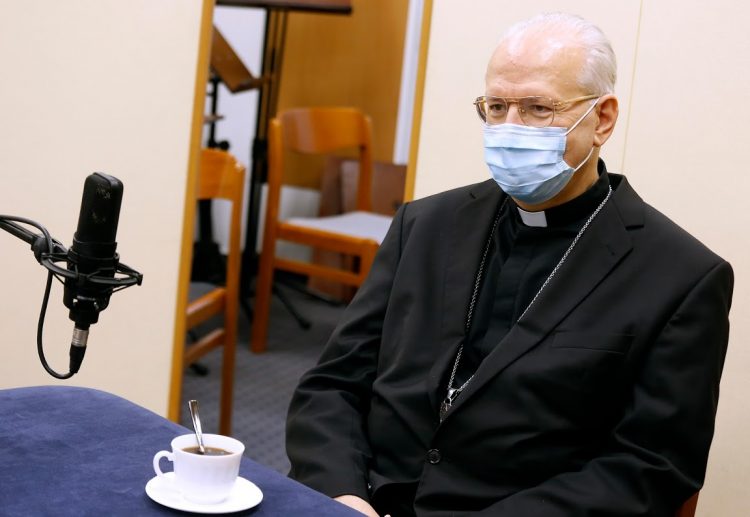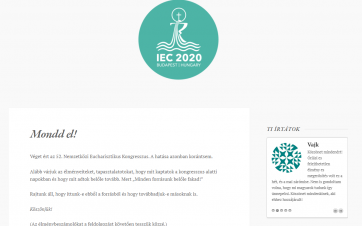
„There’s not only our yearnings to tell us what is good for us”

“The Catholics assassinated in a church in Nice may be duly considered as martyrs, as they had been killed deliberately, out of hatred of faith”. The above was said by Cardinal Péter Erdő in his homily on All Soul’Day, while in Vienna an armed man was roaming the streets and randomly firing at innocent passers-by. Following those developments the Cardinal-Primate spoke via a podcast at the International Eucharistic Congress, among other things, about why it is so important to manage our anger felt at the death of innocent people.
Anger is bad advice
“At the sight of innocent victims, people understandably get angry. Anger, being one of the seven deadly sins, is not a sin in itself, but it can give rise to violence, murder, revenge and lots of other things we shall not identify with”, said Cardinal Péter Erdő after innocent people fell victims of terrorism yet again. The Cardinal reminded us, though, that Christian Love is compelling towards everybody. He added: “Jesus’ teaching about love of the enemy means that even while defending ourselves, we must remain moderate in a way taught by the ancient church on rightful self-defence”.

Rightful self-defence is a possibility, and at times an obligation
Cardinal Péter Erdő explained that the traditional theology of morals lists values, such as: life, health and vital goods that can be targeted in an attack, but we are entitled to defend them even by force. The question of what shall vital goods mean arises naturally. The Cardinal referred to an example used by his teacher at the Piarist high school: vital value is a winter coat in winter weather. In 1945 gangs were roaming the streets and stripping unfortunate people at gunpoint. Those, who could not take care of themselves, would get frozen. And the high priest added: “Life is at stake in a terrorist attack. Therefore rightful self-defence is a possibility, and for certain people an obligation”.
Self-restraint and responsibility
The high priest drew from the Gospel the example of John the Baptist who declared repentance before the apparition of Jesus. All sorts of people heeded to his call, including soldiers, who asked how about them. And the answer was not “discard your armour”. As the Cardinal pointed out, John the Baptist pleaded with them to humbly accept their pay and refrain from ransacking the innocent population. So that they do their armed service, protect the community with responsibility and self-restraint.

Small wonders
“Because we are taken care of!”, was the response of Cardinal Péter Erdő when someone remarked, that in spite of many hardships the pandemic brings to the surface good things, too. He told the following story as a ‘small wonder’. A fellow clergyman in a serious condition caused by the virus called for a priest from his hospital bed. The Cardinal routinely got in touch with the pastoral service of the hospital, being aware that even if someone of them volunteers to visit the infected fellow priest, there is a risk of contagion to be spread further. But the head of the pastoral service assured him, that they had a novice, who had already got cured from the virus and volunteered to visit all Covid-infected patients who asked for a priest.
Priests and the internet
The first, spring wave of the pandemic shifted celebrating the holy mass online, too. Cardinal Péter Erdő himself recorded several videos from quarantine. The solution had been brought about by predicament, so he told how he kept in touch with believers on a new platform. Social media is a possibility, but also a seduction, since, the high priest explained, there are some who exploit it for a personal successful “production” , instead of focusing on the holy service. There are examples of good practice, too, recommended to the clergy. The emphasis must be on online quality content, specialist training has been suggested about the right way of using social media to communicate liturgical content. Although enhancing presence on the internet was said to be an important task, the high priest himself prefers to withdraw among his old books when feeling the need for replenishment.

Pandemics in the past and now
The Cardinal belongs to a generation who had to face a pandemic in their childhood. “The thing in common then and now was that the radio announced where we shouldn’t go”. It was during summer vacation time, and children were upset, because they were banned from where exactly they meant to go – the movies and the beaches. Péter Erdő spent his quarantine in grandma’s garden. He recalled how they were shocked to learn from neighbours and relatives that children who got the polio virus, had to live with disabilities the rest of their lives. But he vividly recalls how later, at school they were told that paralysis could be prevented by administering the Sabin droplets. To the question of whether he used to fear anything, the high priest remembered, from his childhood again, that in a dark room he would imagine pieces of furniture and clothing as weird beings, animals. “One gets easily scared when one fails to understand what it is that he perceives”. A bigger problem than fear, the Cardinal believes, is considerable distrust among people that has been growing these past decades due to, primarily, mass media, fake and mutually contradicting news.
Love: striving for genuine good to people
In the conversation Cardinal Péter Erdő touched upon expressions so meaningful for Christian communities and how they hollowed out and were devalued in everyday use. Love was singled out, as a pivotal concept. For example, it is not love when someone fulfils all the wishes of an alcoholic or a drug addict, knowing that addiction leads to self-destruction. The high priest underlined: „There’s not only our yearnings to tell us what is good for us”. God created man and the world based on principles to indicate what is for the good and what results in annihilation. To strive for man’s genuine good, that is what love is.
Photo: Marcsi Ambrus
Source: IEC










